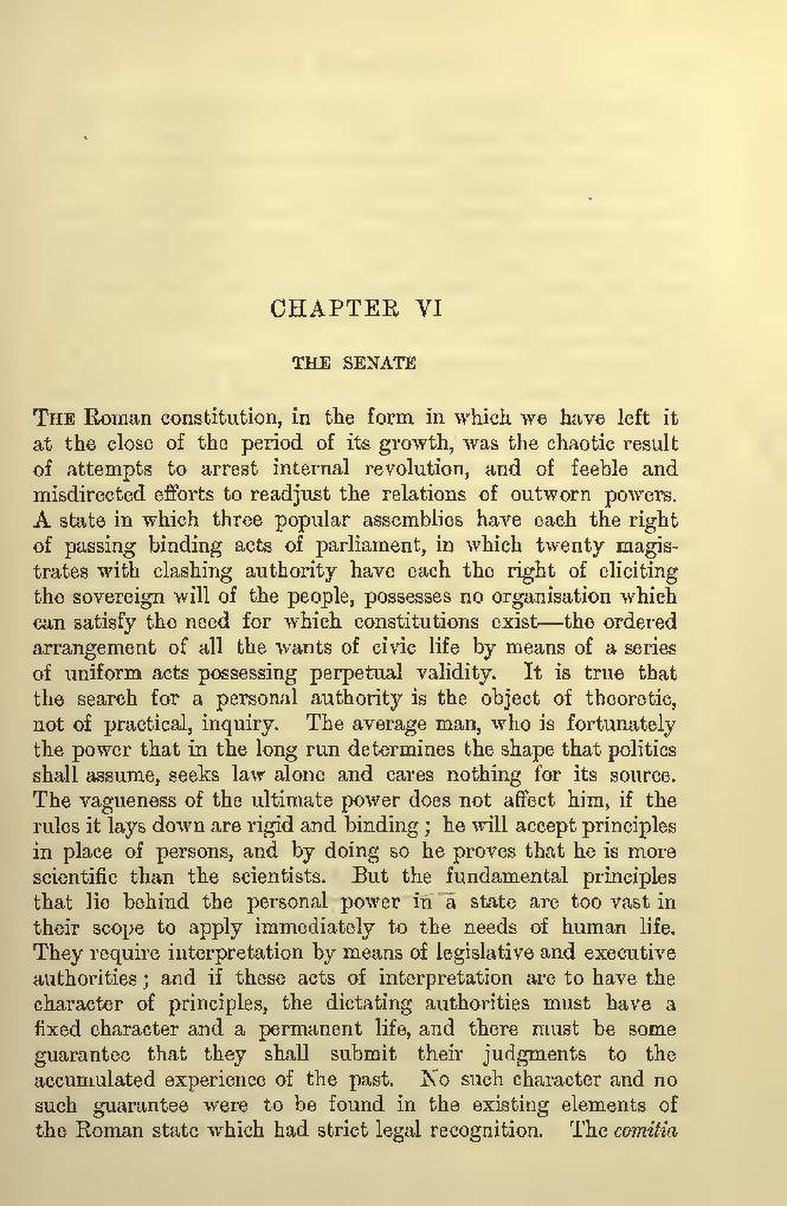CHAPTER VI
THE SENATE
The Roman constitution, in the form in which we have left it
at the close of the period of its growth, was the chaotic result
of attempts to arrest internal revolution, and of feeble and
misdirected efforts to readjust the relations of outworn powers.
A state in which three popular assemblies have each the right
of passing binding acts of parliament, in which twenty magistrates
with clashing authority have each the right of eliciting
the sovereign will of the people, possesses no organisation which
can satisfy the need for which constitutions exist—the ordered
arrangement of all the wants of civic life by means of a series
of uniform acts possessing perpetual validity. It is true that
the search for a personal authority is the object of theoretic,
not of practical, inquiry. The average man, who is fortunately
the power that in the long run determines the shape that politics
shall assume, seeks law alone and cares nothing for its source.
The vagueness of the ultimate power does not affect him, if the
rules it lays down are rigid and binding; he will accept principles
in place of persons, and by doing so he proves that he is more
scientific than the scientists. But the fundamental principles
that lie behind the personal power in a state are too vast in
their scope to apply immediately to the needs of human life.
They require interpretation by means of legislative and executive
authorities; and if these acts of interpretation are to have the
character of principles, the dictating authorities must have a
fixed character and a permanent life, and there must be some
guarantee that they shall submit their judgments to the
accumulated experience of the past. No such character and no
such guarantee were to be found in the existing elements of
the Roman state which had strict legal recognition. The comitia
